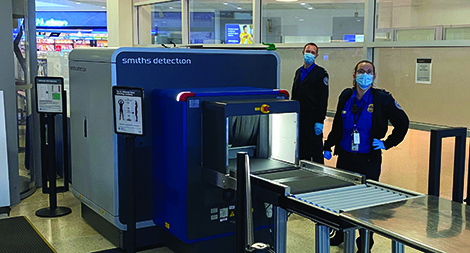The threat of COVID-19 is another layer of unpleasantness for air travelers. Many already were stressed by airport security—the long lines, worrying about what may trigger a re-check, emptying pockets and removing shoes, belts and coats. Such a hassle. The good news is that the airport security experience could improve over the next few years.
Dana Wheeler, chief executive officer of Plymouth Rock Technologies, a threat-detection technology developer, said there are “multiple layers of security technology in development that will cause the false alarm rates at the TSA (Transportation Security Administration) checkpoints to go down and the lines to move faster. And they’ll make the airport perimeter, including outlying parking areas, much more secure.â€
Wheeler, a supporter of an international push for the changes, said new devices will use a combination of technologies, including millimeter waves and artificial intelligence to identify threats. He stressed that all this technology – including a 3-D imaging foot scanner by his company that is in the final testing phases—is safe and already proven to work in other applications.
“Nearly every car coming off the production line is equipped with millimeter-wave radar for cruise control, blind-spot detection, and collision avoidance. Now, we are working to make these solutions for security applications more widely available,†Wheeler said.
